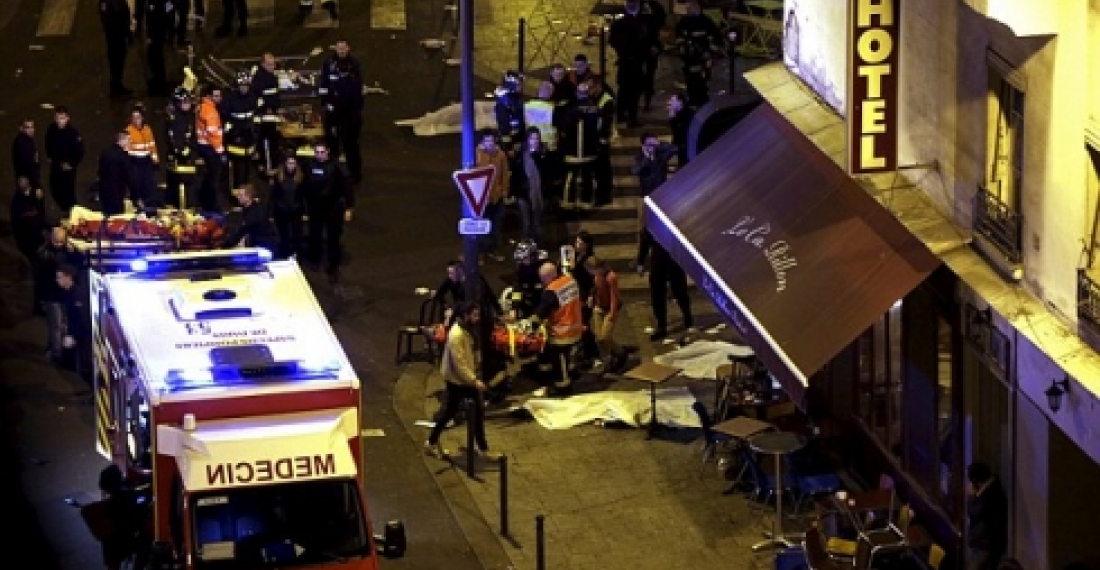On Friday evening, Paris came under a series of terrorist attacks. There were six simultaneous suicide attacks in two districts, and at the stadium "Stade de France". According to official sources in Paris by Saturday morning, 128 people were reported dead and more than 180 were injured, 99 - seriously.
The attacks in Paris drew immediate worldwide condemnation. World leaders voiced their support for France, and expressed their condolences to the victims and their families, in these difficult moments for the country.
The President of the EU Commission Jean-Claude Juncker tweeted: "I am deeply shocked by the events in Paris. We stand in full solidarity with the people of France."
Federica Mogherini,High Representative of the EU for Foreign Affairs and Security Policy. Vice President of the EU Commission: "En train de suivre avec douleur et effroi les évènements à #Paris. L'Europe est avec la France et le peuple français #Unis"
British Prime Minister David Cameron tweeted this: "I am shocked by events in Paris tonight. Our thoughts and prayers are with the French people. We will do whatever we can to help."
John Kerry, US Secretary of State: "U.S. will support French people in any way we can & continue to stand for liberté, égalité, fraternité."
And this from the Turkish Prime Minister: "This henious attack in #Paris targeted humanity as a whole."
President of the Russian Federation extended his commiseration in connection with "a series of monstrous acts of terrorism in Paris."
The leaders of the South Caucasus also expressed solidarity and condolences to the French people and government.
In his letter the Azerbaijani President said that "Azerbaijan is extremely angered by this horrible incident, resolutely condemns terror and comprehensively supports fight against all its manifestations. In this difficult time our thoughts are with the people of France."
President of Armenia on his part said that "Armenia stands with the brotherly France, and is ready to render full assistance at this difficult time. I extend my deepest condolences to you, dear Mr. President, wishing patience, strength and resilience to the friendship people of France and the relatives of the dead, and a speedy recovery to the injured," the Armenian President's message states.
Georgian PM Irakli Garibashvili said that this "shocking tragedy" in Paris "unites the civilized world in solidarity to France and the French people. On the other hand, it also unites us in fight against the huge evil - terrorism," PM Garibashvili said.
President Giorgi Margvelashvili said in his message to the French counterpart, François Hollande, that Georgia has been "shocked by horrendous terrorist attacks."
"This is the crime directed against the entire civilized world and humanity; we should all get united in fight against it," the Georgian president said.
source: commonspace.eu with agencies
photo: REUTERS







